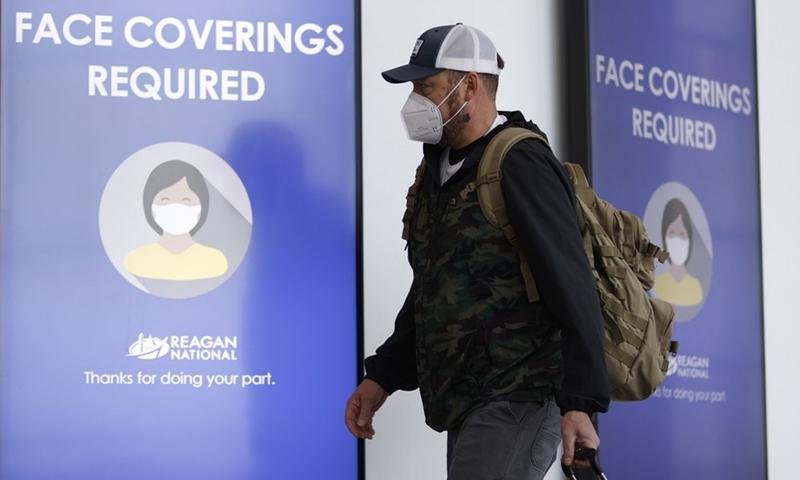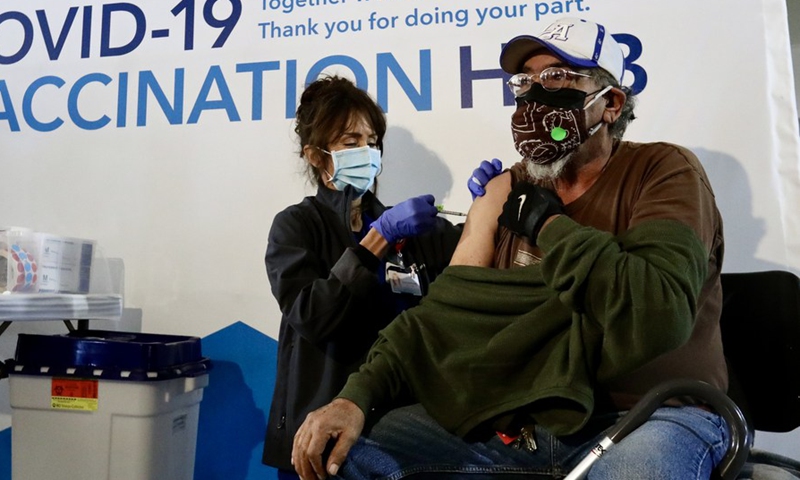
A traveler wearing a face mask is seen at Ronald Reagan Washington National Airport in Arlington, Virginia, the United States, Feb. 2, 2021.Photo:Xinhua
The coronavirus variant first detected in the United Kingdom is spreading rapidly across the United States, new research suggests, adding concern to resurgence of the pandemic in the country.
Analyzing half a million coronavirus tests and hundreds of genomes, researchers predicted that within a month, this variant, known as B.1.1.7, could become predominant in the United States, potentially bringing a surge of new cases and increased risk of death.
The study, posted on the preprint server MedRxiv on Sunday, echoed a forecast issued last month by the US Centers for Disease Control and Prevention (CDC), which warned that B.1.1.7 could become predominant by March if it behaved the way it did in Britain.
According to the study, detection of the variant increased at a logistic rate similar to those observed elsewhere, with a doubling rate of a little over a week and an increased transmission rate of 35 to 45 percent.

A health care worker administers a dose of COVID-19 vaccine to a recipient at a new vaccination site in the California State Polytechnic University in Pomona, Los Angeles County, California, the United States, Feb. 5, 2021.Photo:Xinhua
Currently there are three dominant coronavirus variants spreading in the United States, according to CDC data. A total of 699 infection cases of coronavirus variants had been reported in at least 34 US states as of Sunday.
The vast majority of these cases, 690, were caused by B.1.1.7. There were six cases of a new strain initially discovered in South Africa, called B.1.351, and three cases of the P.1 strain first discovered in Brazil.
New COVID-19 cases and hospitalizations are declining in the country from recent surges, but health experts warn those contagious coronavirus strains may threaten to undo progress and lead to a resurgence.
The United States has recorded over 27 million cases with nearly 464,000 related deaths as of Monday afternoon, according to the real-time count kept by Johns Hopkins University.
